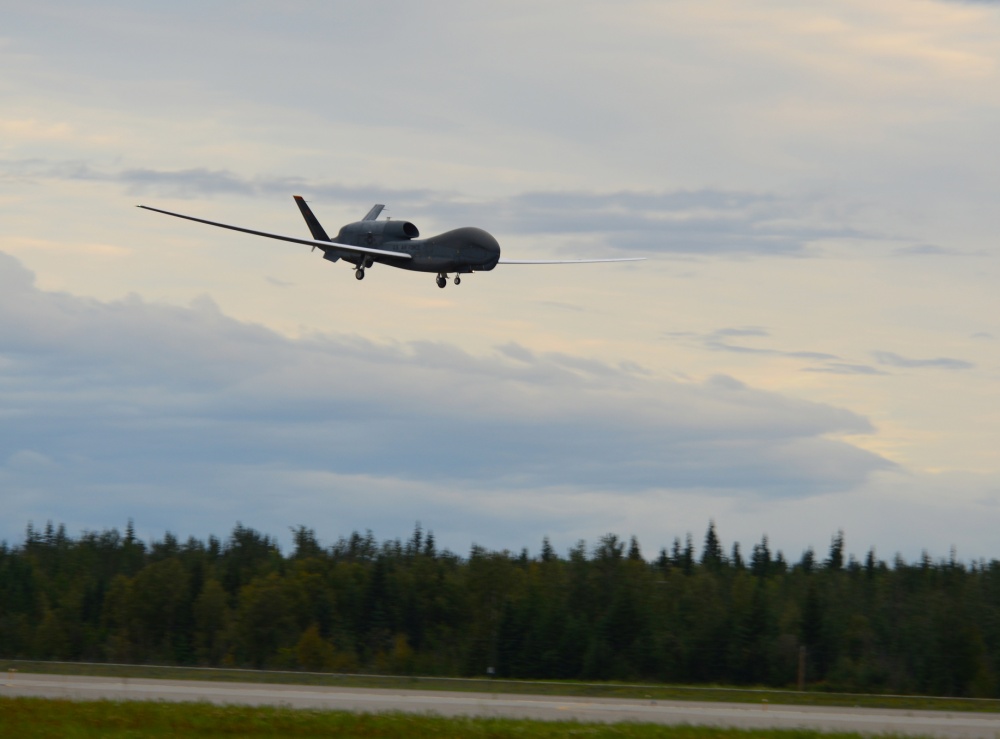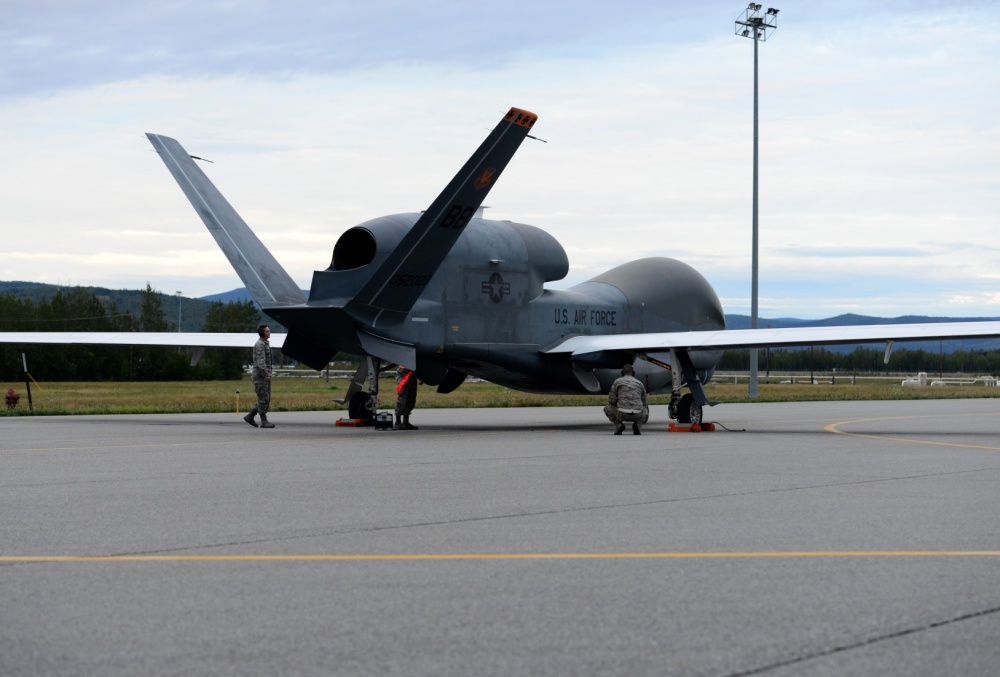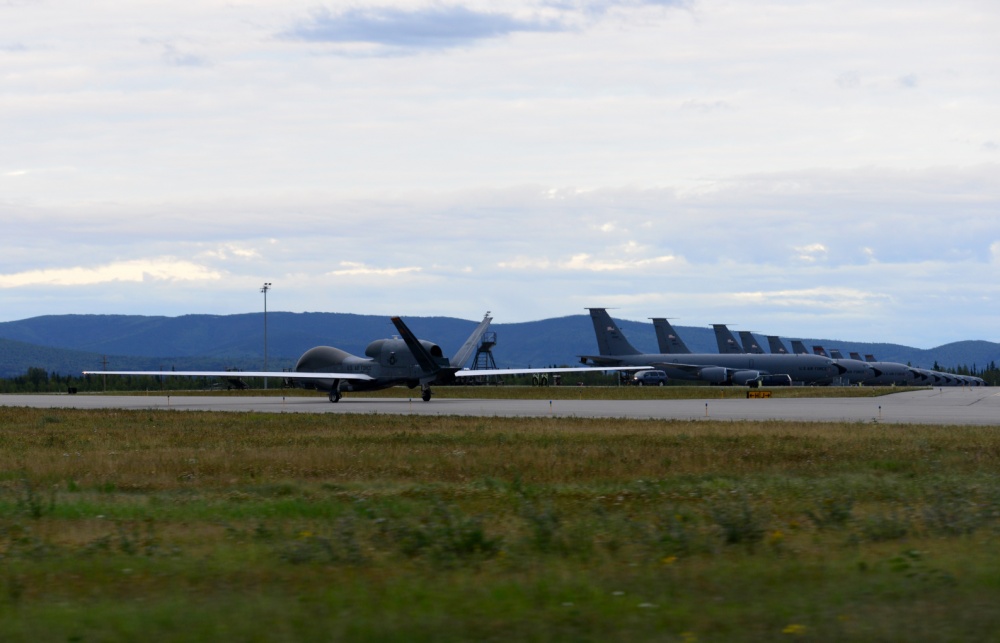RQ-4 makes historic first landing at Alaska during a simulated combat training exercise
Posted on
The U.S. Air Force has announced that the RQ-4 Global Hawk unmanned surveillance aircraft makes a historic first landing in Alaska during the simulated combat training exercise.
The 12th RS sent a team of pilots to RF-A to better incorporate the RQ-4’s reconnaissance gathering capabilities into the simulated warfighting efforts. This marks the first time an RQ-4 has landed in Alaska during a simulated combat training exercise.
“We are here to integrate with the exercise and our coalition and joint counterparts who have brought their units up here,” said Capt. Nate, 12th Reconnaissance Squadron assistant director of operations. “Whether it is Army or Navy, we are practicing doing the exercise with them and relaying information that they can utilize.”
RF-A is a Pacific Air Force’s directed training exercise conducted on the Joint Pacific Alaska Range Complex. This iteration of the exercise features more than 100 aircraft, from more than a dozen units from the United States, Australia, Canada, and Great Britain.
The exercise is designed to improve interoperability between participants, which includes 12th RS RQ-4 pilots operating from mission control elements at Beale.

“It is a great opportunity for us to show what we can do,” Nate said. “Not everyone knows what we can do, so they don’t know how to best utilize our products.”
Since the aircraft is unmanned, the 12th RS sent a team of pilots to RF-A to better incorporate the RQ-4’s reconnaissance gathering capabilities into the simulated warfighting efforts.
“We are doing mission planning and acting as liaison officers,” said 1st Lt. Andrew, 12th RS RQ-4 pilot. “We are able to coordinate on the ground with the other pilots and mission planners to figure out how we can best integrate the RQ-4 into what is happening. Then we relay that to the pilots who are taking off out at Beale.”
RF-A dates back to 1976 when it was known as COPE THUNDER and even though this is the first time an RQ-4 has landed during the exercise, Andrew believes everyone involved will see the benefits of having high-altitude reconnaissance.

“We are giving them imagery to provide a view of the battlefield and the effects of ordnance dropped,” Andrew said. “I have had a lot of conversations where people from the Air Force, Navy, and other countries’ militaries are seeing the impact of the RQ-4 and are surprised with its capabilities.”
The RQ-4 participating in an exercise of this magnitude benefits 12th RS and our nation’s ability to incorporate reconnaissance in expeditionary warfighting conditions.
“We benefit by showing off our capabilities, so other people know what we can do,” Nate said. “We can also build and work on tactics so we can present better intelligence, surveillance, and reconnaissance in wartime and future exercises.”

Subscribe to our newsletter
Promotions, new products and sales. Directly to your inbox.
